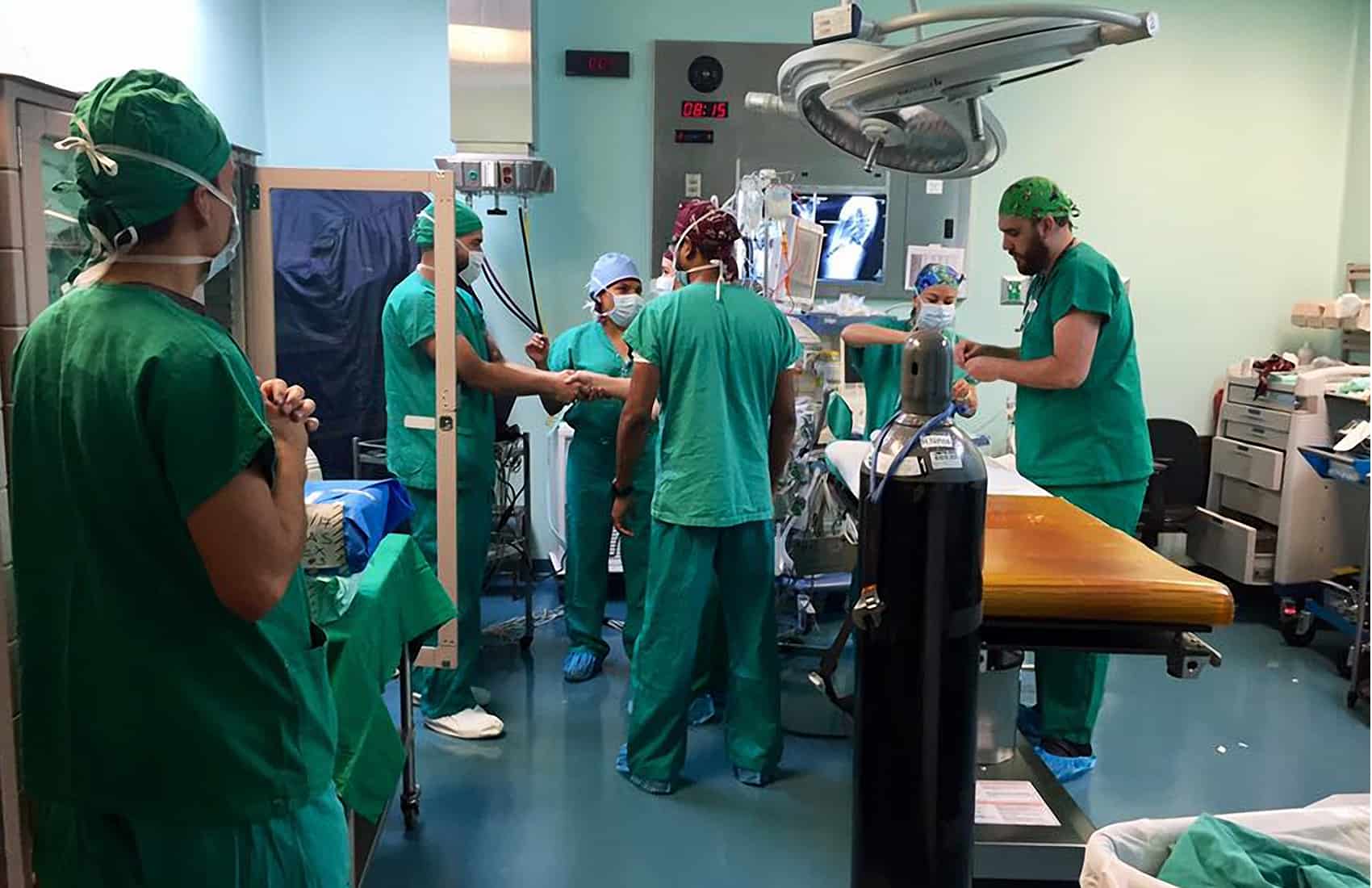A group of U.S. surgeons and other specialists joined local physicians this week to perform spine surgeries on 11 patients from the National Children’s Hospital in San José.
The SpineHope Foundation sponsored the medical mission, which first visited Costa Rica in 2012 as part of the foundation’s global outreach program. Since then, volunteer groups have come here five times to help underprivileged children as young as 2 years old. They all suffered from complex spine deformities, mostly from scoliosis.
So far, the program has allowed 41 patients from the public hospital to undergo specialized procedures. It also includes a training program through which U.S. specialists host educational lectures for Costa Rican counterparts about new orthopaedic surgery techniques and after-care procedures.
The 13-member group includes four surgeons plus anesthesiologists, nurses and other technical staff. Besides performing orthopedic surgeries, the group is also evaluating other hospital patients and recommending treatment plans.
They also conducted followup evaluations on patients who had surgeries in previous years, and provided medical equipment and implants.
Two children this year received medical devices not available in Costa Rica, costing some $30,000. These devices will help children correct severe deformities during their growth stage until they reach the appropiate age to undergo a definitive surgery, the Children’s Hospital reported.
Complex spine surgeries
The spine surgeries performed this week are complex procedures, each taking up to eight hours. They also require patients to remain at the hospital for recovery periods of several days.
Patients first spend some days at the intensive care unit, then at the orthopaedics department. Finally, they enter a rehabilitation process that must continue after they are discharged from the hospital.
Jorge Alpízar, director of the Children’s Hospital’s Department of Orthopaedics, told The Tico Times that the mission is of great benefit for the country, and thanked SpineHope for their support.
“The program benefits our patients, our staff and the hospital as well,” Alpízar said in a written response. “These volunteer missions allow our specialists to exchange knowledge about pathologies that are very common here.”
Last year’s mission brought a team of 15 volunteers who performed 11 surgeries, evaluated 27 children and held various lectures.
The SpineHope outreach program also allows local medical students to apply for internships at medical centers in the United States.







